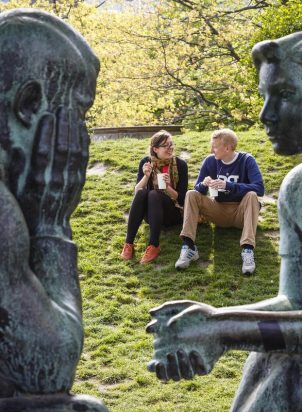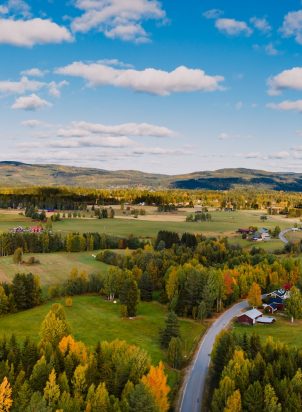In a new study by Nordregio, Arctic youth reveal their preferences for the future. Access to high level education is the main reason why young people in the rural Arctic move to larger cities. But are they lost forever? A multi-locational lifestyle with combining work, education and different places to live is a new standard for the young generation.
How to retain and attract the young population is a major issue for most rural regions in the Nordic Arctic: Iceland, Faroe Islands, Greenland and the Northern parts of Sweden, Finland and Norway. In a new qualitative study by Nordregio, most of interviewed young men and women believe they will have secure and well paid jobs in the future, and they see education as a way to reach that goal. More vocational training is also in high demand.
Many plan to move to a more urban area to get an education and to work for the next 10-30 years. But not necessarily leave the Arctic. They predict that Arctic communities that will thrive in the future are those that have grown more urban, like Steigen in Northern Norway.
Mobility has become a basic condition for these young individuals. In ten years’ time, the geographical place for living or working is as much foreign as domestic according to the study. A multi-locational lifestyle could be seen as a new trend.
– This means that you want to live in different places, for education and for work, as a learning experience that brings wisdom and maturity, says Anna Karlsdottìr, researcher at Nordregio.
For young on the move, digital communication is an embedded part of life. Not least to keep those long-distance relationships going. Young Sámis in Northern Sweden show how social media platforms can also be used for empowerment purposes, raising awareness about land use rights etc.
– To include the young population in community development seems to be a good recipe for communities that want to see their young stay or return. One way is to start a youth council with paid representatives as part of the formal decision making body. That way youth perspectives become an integrated part of the political work for local development, says Anna Karlsdottìr.
More about the study:
Nordregio and the Nordic working group on sustainable regional development in the Arctic have carried out an analysis to uncover young people’s own perspectives of their future possibilities in Arctic communities. A group of scholars from Iceland, Norway, Faroe Islands, Greenland, Sweden and Finland were asked by the working group to contribute to the study.




